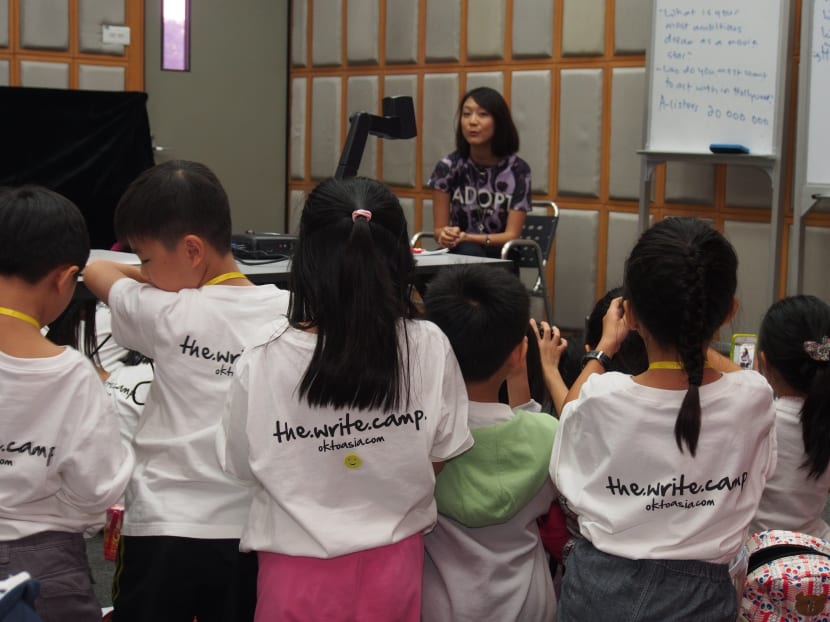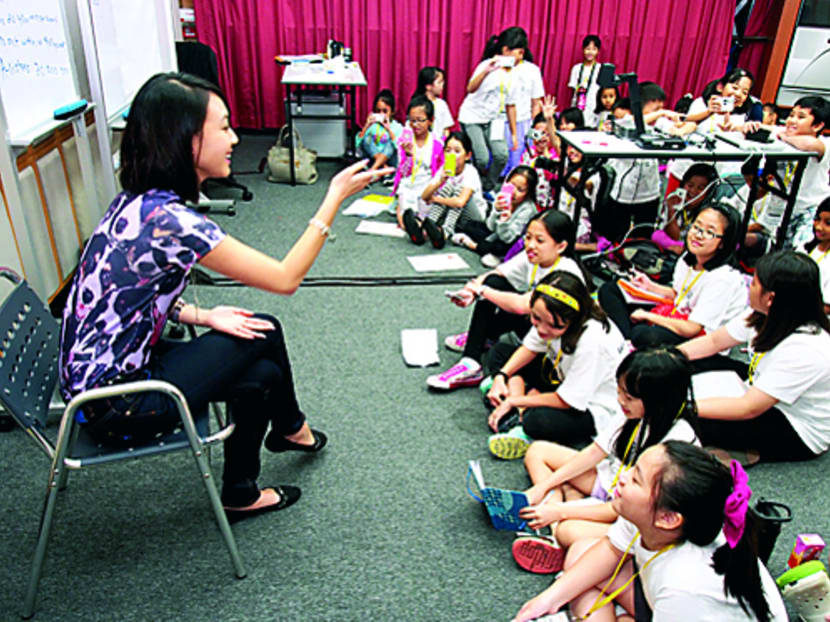Growing demand for children’s holiday camps
SINGAPORE — Every year, when the school holidays come around, the 11.7ha open fields at Turf City turn into a camp site for dozens of children aged between six and 13.


SINGAPORE — Every year, when the school holidays come around, the 11.7ha open fields at Turf City turn into a camp site for dozens of children aged between six and 13.
These children will be playing different sports as part of a week-long programme to learn about themselves and about working with other kids.
The Centaurs Multi-Sports Camp was started about eight years ago by youth rugby and outdoor activity provider Centaurs Group. “We had the facilities … and we just wanted to utilise (them) as much as possible,” said Mr Jason O’Neill, 25, the Camp Director.
As testament to the growing popularity of the camp, the number of participants has gone up by about 20 per cent each year and a new camp was created where older children spend a week on Bintan Island, mainly doing water sports but also helping less privileged children at orphanages or schools.
Amid high demand from parents, holiday camps for children are a thriving business, with various providers offering a range of programmes.
From sports camps to drama workshops and programmes to improve a child’s grasp of an academic subject, these activities — which last about three to seven days — can set parents back from a few hundred to thousands of dollars.
Several camp organisers TODAY spoke to declined to give participation figures over the years but they attested to a growing demand. Apart from running more camps, they have also expanded their range of offerings in an increasingly competitive market.
For example, the ACT 3 Drama Academy teaches children to sing and act in its five-day workshops. The sessions cost between S$300 and S$450 and are tailored to different age groups. Its spokesperson said parents who send their children to the workshops want the latter to be preoccupied during the school holidays, as well as to be exposed to performing arts.
Some parents turn to holiday camps to help their children fare better academically. Mr Teng Song Guan, a civil servant, said he decided to send his daughter for a Maths camp organised by oktoAsia — an e-learning platform run by MediaCorp — to better prepare her for the PSLE next year. This, after she did not do well in her Primary 5 maths exam, he said.
The PSLE Maths Preparation Workshop was jointly developed with education publisher Pearson, and teaches students techniques to solve PSLE Maths questions. The children were required to complete online assessments before and right after the three-day workshop. According to the organisers, the post-workshop assessment saw students faring better. For example, the proportion of children getting below average scores went down by 9 per cent.
On top of its maths workshop, oktoAsia rolled out a series of holiday camps last month to help children with subjects such as science and English. The Write Camp saw children, aged nine to 12, pick up writing techniques and interviewing skills through a series of activities including interviews with radio deejays and visits to the museum, the zoo and other places of interest.
Other holiday camps with a strong academic focus have also tailored their programmes to match the curriculum used in schools.
For example, private education provider Lorna Whiston has increased its camps’ focus on speech and drama components, as oral examination takes up a greater weight in the national English curriculum.
“We do it (in a way) that kids do not feel the pressure … So we try to do topics that they are interested in ... and with such imagination, it’s very fun (for the children),” said Ms Esther Wong, Lorna Whiston’s Marketing Communications Manager.
Apart from physical and academic development, some holiday camps impart study techniques and life skills, such as those organised by SuperCamp and Adam Khoo Youth Division.
SuperCamp Programme Manager Melvin Soh said parents tend to send their children to the camp because their child is either shy or hyperactive, or to peel the child away from his or her phone and computer games.
The camp, which costs S$2,250, uses a variety of games — such as navigating through a maze — to teach children life skills. Citing the maze as an example, Mr Soh said, through trial and error, the children have to try different paths to cross from one end to the other and learn how to handle failure.





